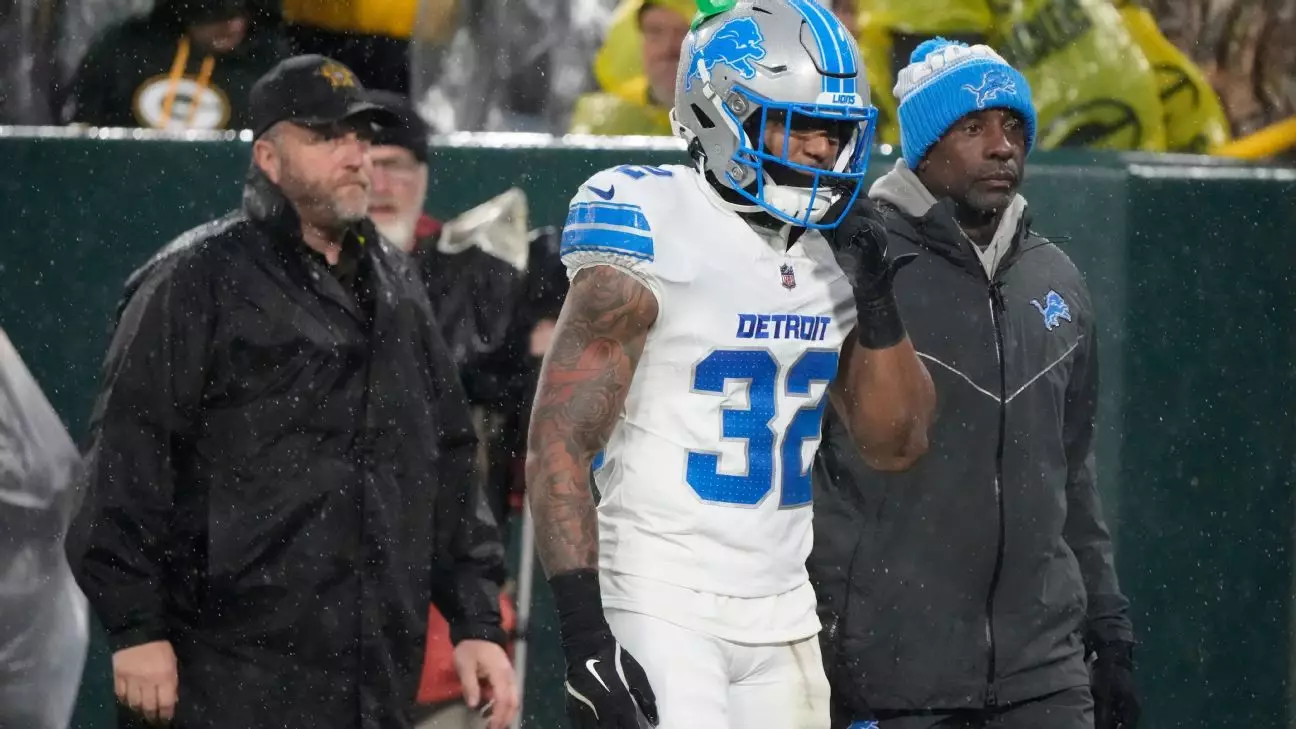The Detroit Lions have continuously faced their share of challenges, much like any professional sports team. In the rapidly evolving climate of the NFL, managing player behavior and performance under pressure is vital for fostering a cohesive team environment. Recently, two such instances emerged from the Lions locker room involving Brian Branch and Jameson Williams, both of whom embody the fine line between personal accountability and the pressures of professional football.
In a recent game against the Green Bay Packers, Brian Branch, the young defensive back for the Lions, experienced a pivotal moment that transcended the mere outcome of the match. His ejection during a high-intensity showdown at Lambeau Field stemmed from a late hit on Packers wide receiver Bo Melton. With the Lions leading 7-3 in the second quarter, the action not only jeopardized his team’s edge but also highlighted the need for greater self-regulation under pressure. Reflecting on the incident, Branch expressed remorse for both his hit and his subsequent actions that included gesturing rudely at the fans—a moment he described as a “heat of the moment” lapse.
Coaches and teammates offered support, urging Branch to emphasize player safety by lowering his hitting target while reiterating their confidence that his intentions were never malicious. This incident provides insight into a common tension in football: maintaining aggression and physicality while adhering to safety regulations. Branch’s acknowledgment of the referee’s ruling, coupled with his commitment to learn from the experience, illustrates personal growth and an understanding of the broader implications of his actions on the field.
Simultaneously, wide receiver Jameson Williams has made headlines with his comeback after serving a two-game suspension for violating the NFL’s substance policy. Coach Dan Campbell has been vocal in expressing his confidence in Williams, indicating that the young athlete is ready to re-integrate with the offense without skipping a beat. Williams, too, recognizes the significance of Campbell’s trust, stating that he has learned valuable lessons about maturity and decision-making during his time away from live game action.
The return of Williams to the roster embodies not merely a personal rehabilitation but a testament to the institution of resilience the Lions are nurturing. His experience amplifies the narrative that professional athletes are not just players; they are individuals navigating life’s challenges while under the intense glare of public scrutiny. The wisdom Williams gained serves as a reminder that every setback can foster growth and a renewed commitment to excellence in both personal and professional realms.
Both Branch and Williams’ situations underscore larger themes that resonate throughout the sports community: the necessity for accountability, the importance of mentorship, and the delicate dance of performance amidst pressure. These situations can serve as pivotal learning opportunities for the young roster of the Lions, encouraging a culture that prioritizes mental resilience and team unity.
As the NFL season progresses, the Lions organization finds itself at a crossroads; how it responds to these challenges will define not only the trajectory of its current season but also the character and philosophy of the franchise in the long run. With a supportive coaching staff and a commitment to learning from adversity, the Lions have the potential not only to thrive on the field but also to cultivate responsible, introspective athletes who embody the values of the sport.
The dual narratives of Branch and Williams remind us that professional sports is much more than just a game. It is a microcosm of life, replete with lessons about resilience, accountability, and growth. For the Detroit Lions, the season ahead holds the promise of redemption and realization, both on an individual level and as a cohesive unit, poised to weather the unique trials they encounter.


Leave a Reply